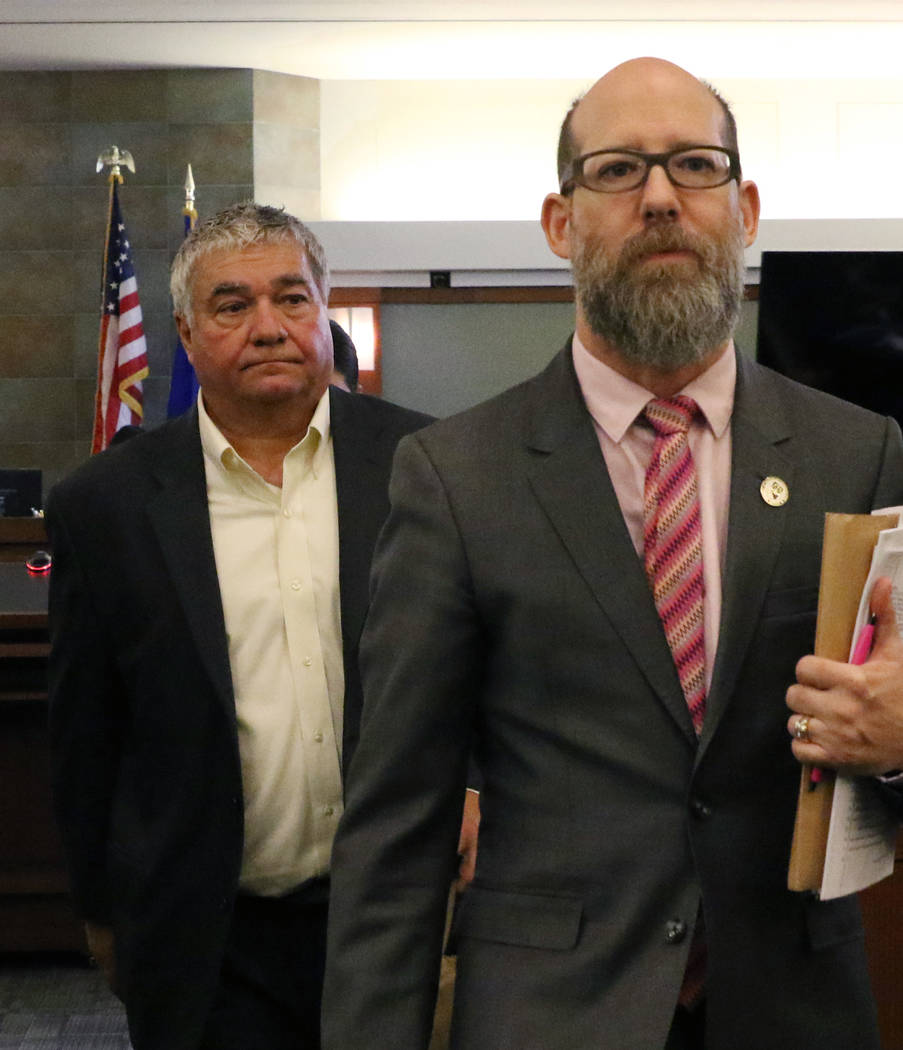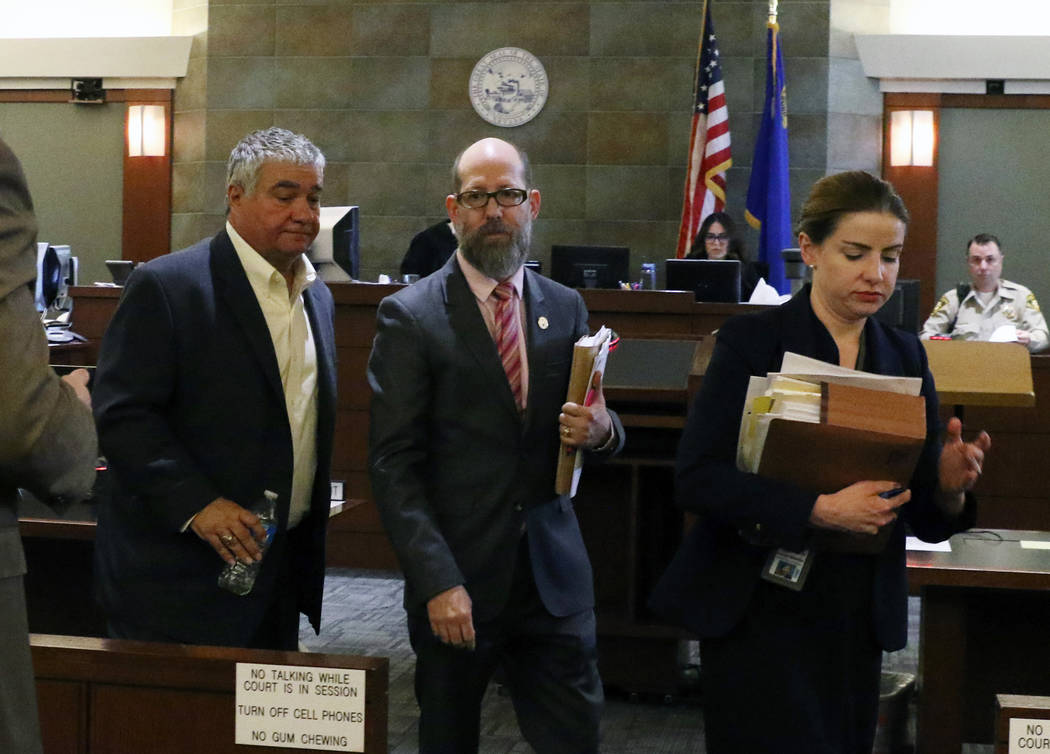Ex-Henderson constable pleads to gross misdemeanor, repays $80K
Former Henderson Constable Earl Mitchell pleaded guilty to a gross misdemeanor without admitting guilt Tuesday and repaid more than $80,000 to settle a criminal case sparked by a Review-Journal investigation.
Records show prosecutors earlier balked at allowing Mitchell to plead to a misdemeanor, but on Tuesday they agreed to a gross misdemeanor of fraudulent conveyance. Mitchell received no jail time, probation and was only required to pay back the county money he took.
Mitchell, 62, used an Alford plea in which he didn’t admit any wrongdoing but acknowledged that prosecutors could likely prove their case. He was indicted in December on four felony theft charges and one charge of fraudulent appropriation of property by a public officer last year.
District Attorney Steve Wolfson said he was not going to settle for a simple misdemeanor but a gross misdemeanor is a more serious offense and Mitchell agreed to pay back the money.
“Every case is evaluated on its own merits,” Wolfson said in a phone interview. “It’s a fair resolution because he will have a gross misdemeanor for theft or fraud on his record for a number of years.”
Attorney Craig Drummond, a former U.S. Army judge advocate general, said the average person would likely have received more punishment for a similar case.
“I believe it is abnormal for a theft and fraud-type case,” he said. “However, it’s not necessarily inconsistent with how other public officials are treated in Nevada.”
Drummond also said county officials should have caught the theft earlier and that might have mitigated Mitchell’s culpability if the case went to trial.
RJ investigation
The criminal investigation of Mitchell started with a Review-Journal article in March 2018, detailing thousands of dollars in checks he wrote himself, ATM withdrawals at casinos and use of a township debit card at restaurants and for travel.
The Review-Journal’s analysis of constable bank statements found that about $151,000 that Mitchell requested for his deputies’ pay and expenses in 2016 and 2017 was not paid to the deputies. Instead, Mitchell wrote himself about $72,000 in checks out of the township account, which was filled with fees for serving legal documents and evictions.
He also withdrew about $9,000 at ATMs, including ones in casinos and video poker bars, and charged thousands more at restaurants and for travel to a debit card.
Mitchell transferred some money from his personal account to his township account, reimbursing part of the apparently personal expenses.
Police determined Mitchell used $82,000 of county funds for personal use by inflating pay and expenses for deputies and pocketing the difference, records show.
“The media made the matter public and he stopped,” prosecutor Jay P. Raman told Judge Douglas Herndon after the indictment was unsealed.
Mitchell, who had served as constable since 1995, abandoned his re-election bid right before the Review-Journal story was posted online.
Felony sought
Early plea negotiations in the case apparently were not fruitful because prosecutors declined offers that Mitchell plead to a misdemeanor and refused to allow Mitchell to get a deferred judgment through gambling court, records show.
“We made an offer to JP (Raman) to resolve the potential criminal charges … by entering pleas to numerous counts of misdemeanor fraud …,” Mitchell’s attorney Dayvid Figler wrote in a November email included in the court file. “JP indicated ‘Wolfson isn’t interested in misdemeanors.’ JP also indicated any deal would require that even if he needs treatment, he doesn’t seek treatment under” the problem gambling diversion program.
After the email, Figler moved to disqualify the District Attorney’s office, saying the office had a conflict because its budget was approved by the county, which was the victim in the case. The judge was in the process of ruling on the motion when the parties agreed to a settlement. The plea does not include an agreement that allows Mitchell to wipe the gross misdemeanor, which could have included up to 364 days in jail, off his record.
Conviction of a gross misdemeanor means Mitchell will lose his Peace Officer Standards and Training certification that allows him to work in law enforcement.
County money
It’s not clear how Mitchell repaid more than $82,000 because he has substantial financial problems, including owing the Internal Revenue Service and other debtors more than $170,000, according to county liens. The recorder’s website shows none of those have been released.
Figler declined to say how Mitchell raised the money.
“He’s working with all his financial professionals to do that, but I’m not going to get into that,” he said.
Contact Arthur Kane at akane@reviewjournal.com. Follow @ArthurMKane on Twitter.
Related content:
Ex-Henderson constable considers plea on public theft charges
Constable reform on tap after Review-Journal investigation
Records shed light on Henderson constable's 'gambling lifestyle'
Prosecutors say Henderson constable kept salaries meant for employees
Henderson constable indicted, faces 5 felony counts

























